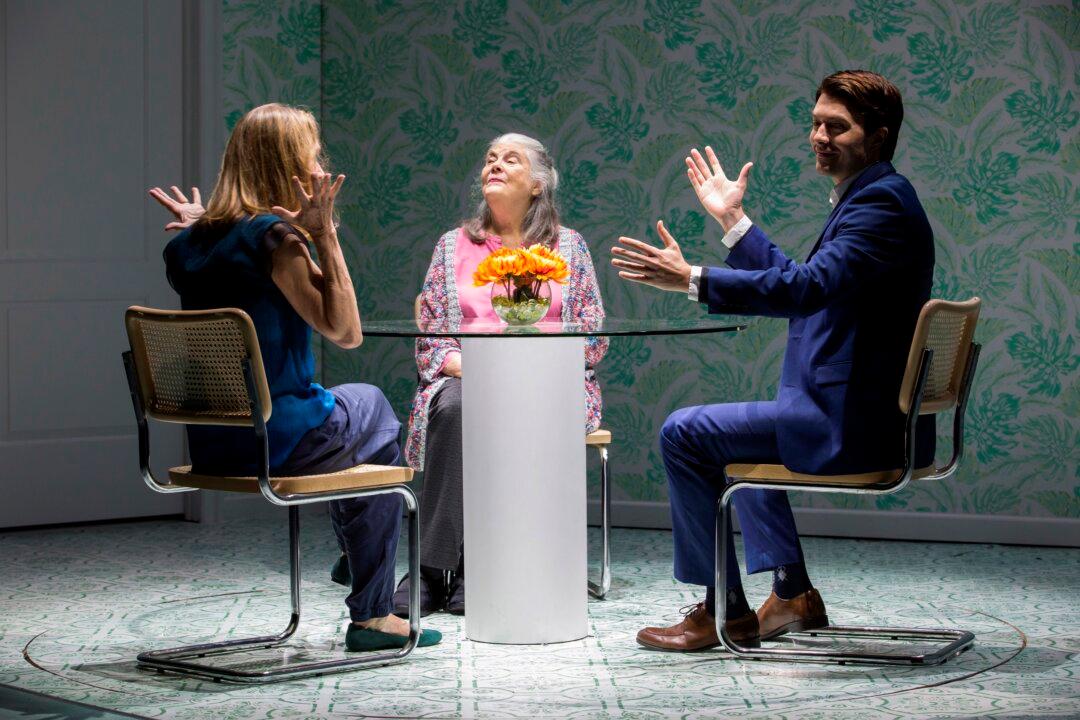NEW YORK—Playwright Jordan Harrison’s “Marjorie Prime” might be called a memory play. I think of that most delicate of memory plays, Tennessee Williams’s “Glass Menagerie.” But, oh, the two works are so different from one another.
“Marjorie Prime” is modern, up-to-date—or beyond—perhaps scarily so. Here we find ourselves in the age of technology and artificial intelligence. People may even become computers, or at any rate, computer-like.

(L–R) Tess (Lisa Emery), her mother, Marjorie (Lois Smith), and Walter (Noah Bean), a computer who serves as a companion to Marjorie in "Marjorie Prime." Jeremy Daniel





